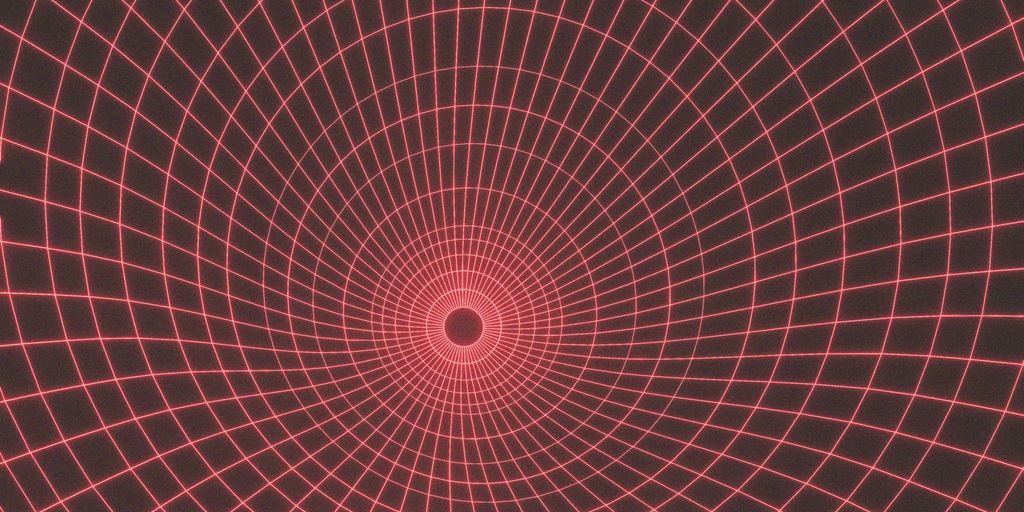Ever wonder if science and faith can actually get along? It turns out, the crazy world of quantum physics might just offer some cool new ways to think about God. This article is all about looking at how these two big ideas, God and quantum physics, connect. We’ll check out what that means for how we see the world, and even how we understand ourselves. If you’re curious about new ideas, especially about the universe and spirituality, then stick around. We’ve got a free “god and quantum physics pdf” guide for you too, so you can dig even deeper!
Key Takeaways
- Quantum science might give us new ways to understand what God is like.
- The strange rules of quantum physics could change how we think about God’s actions in the world.
- Quantum ideas can help us see spirituality in a new light.
- The idea of a universal field connects everything, including consciousness.
- Thinking about quantum physics makes us ask big questions about what’s real and how we know things.
Unveiling the Quantum God: A New Perspective
Exploring the Image of God in Quantum Science
Okay, so let’s talk about God and quantum physics. Sounds weird, right? But some people are looking at quantum science and seeing a new way to think about God. It’s not about proving or disproving anything, but more about finding connections. Quantum physics deals with the really small stuff, like atoms and particles, and it turns out, things get pretty strange down there. It challenges our everyday understanding of reality. Some researchers think that the weirdness of quantum mechanics might offer a fresh perspective on what we mean by "God." It’s like, maybe God isn’t some old guy in the sky, but something more like the underlying fabric of the universe. It’s a wild idea, but it’s getting some attention. You can find spiritual readings online that explore these concepts.
The Metaphysical Implications of Quantum Theory
Quantum theory isn’t just about science; it also raises some big questions about reality itself. Metaphysics is basically the study of what’s real, and quantum physics throws a wrench into our usual ideas. For example, the idea that things only exist when we observe them is a mind-bender. Does that mean reality is dependent on consciousness? Some think so! This has led to some interesting discussions about free will, determinism, and the nature of existence. It’s like, if the universe is probabilistic at its core, what does that mean for our choices? It’s heavy stuff, but it’s also pretty fascinating. Here’s a quick breakdown:
- Quantum weirdness: Particles can be in multiple places at once.
- Observer effect: Measuring something changes it.
- Entanglement: Two particles can be linked, even across vast distances.
Bridging Science and Theology: The Quantum Connection
Can science and theology actually talk to each other? Some people think quantum physics provides a bridge. It’s not about replacing religion with science, or vice versa, but about finding common ground. For example, the idea of interconnectedness in quantum physics resonates with some spiritual beliefs about the unity of all things. The quantum God concept is presented as an engaging spiritual force in a scientific framework. It’s like, maybe science can help us understand the how of the universe, while theology can help us understand the why. It’s a tricky balance, but some thinkers are trying to make it work. It’s about re-evaluating spirituality through quantum lenses. It’s about expanding horizons and allows for the reimagining of concepts on an individual and collective level. It’s a call to a personal spirituality and a deep individual moral and ecological responsibility.
Divine Action in the Quantum Realm
Okay, so this is where things get interesting. How does the idea of God actually doing stuff fit into the weirdness of quantum physics? It’s a question that’s been bugging theologians and scientists alike for ages. It’s not like God is just pushing particles around, right? Or is it?
Does God Interact with Quantum Phenomena?
This is the million-dollar question. Does God directly influence quantum events, or is it more of a hands-off approach? Some argue that quantum indeterminacy—the idea that certain events are fundamentally random—provides an opening for divine action. Maybe God nudges things in certain directions without violating the laws of physics. Others think God set everything in motion at the beginning and just lets it run its course. It’s like the ultimate cosmic clockmaker scenario. I read an interesting article about quantum theology that touched on this.
Understanding God’s Role in a Quantum World
If God does act in the quantum world, what does that even look like? Is it a constant intervention, or just occasional tweaks? One way to think about it is through the lens of probability. Quantum mechanics deals with probabilities, not certainties. Maybe God influences those probabilities, gently guiding the universe toward certain outcomes. It’s a subtle influence, not a heavy-handed one. Here are some points to consider:
- God as the ultimate observer, collapsing the wave function.
- Divine action as influencing quantum fluctuations.
- The universe as a grand experiment orchestrated by God.
Theological Interpretations of Quantum Mechanics
Different theological traditions have different takes on this. Some see quantum mechanics as supporting the idea of a God who is intimately involved in the world. Others see it as reinforcing the idea of a more distant, transcendent God. It really depends on your starting point. But one thing is clear: quantum mechanics challenges traditional notions of causality and determinism, opening up new possibilities for understanding divine action. It’s like the universe is way more flexible than we ever thought, and that flexibility might just leave room for God. I found a free God and Quantum Physics PDF online that goes into more detail.
Quantum Physics and Spiritual Awakening
The Quantum Shift in Global Consciousness
Quantum physics isn’t just about tiny particles; it’s starting to change how we see the world. There’s a growing sense that we’re all connected in ways we didn’t fully grasp before. This shift in understanding is influencing everything from personal growth to global awareness. It’s like the universe is whispering secrets, and we’re finally starting to listen. People are questioning old beliefs and exploring new possibilities, driven by the idea that reality might be more fluid and interconnected than we thought. This has led to a re-evaluation of our place in the cosmos and a deeper search for meaning.
Mystical Implications of Quantum Science
Quantum mechanics has some seriously weird implications that sound a lot like stuff you hear in spiritual circles. Things like entanglement and superposition suggest that reality isn’t as fixed as we assume. It’s almost like the universe is playing hide-and-seek with us. These ideas have opened the door to what some call "quantum mysticism," where science and spirituality converge. It’s not about proving or disproving anything, but more about finding new ways to think about existence. Some people find comfort in these parallels, while others see it as a call to explore the mysteries of consciousness and the universe.
Re-evaluating Spirituality Through Quantum Lenses
Quantum physics offers a fresh perspective on old spiritual ideas. Concepts like interconnectedness and the observer effect are making us rethink what it means to be human and our relationship to the world around us. It’s not about replacing traditional beliefs, but enriching them with new insights. For example, the idea that observation affects reality resonates with spiritual practices that emphasize mindfulness and intention. This re-evaluation is leading to a more inclusive and holistic approach to spirituality, one that embraces both scientific inquiry and personal experience. It’s about finding a way to make sense of the universe, both inside and out. Here’s a quick look at some of the ways quantum physics is influencing spiritual thought:
- Emphasis on interconnectedness
- Exploration of consciousness
- Re-evaluation of reality
The Akashic Field and Nonlocal Coherence
Exploring the Integral Theory of Everything
Okay, so the Akashic Field. It’s a big concept, right? Think of it as this cosmic internet where everything is connected. Ervin Laszlo talks about it a lot, calling it the A-Field. It’s like this fundamental level of reality where all information is stored. He argues that this field coherence is what links everything in the universe. It’s not just a philosophical idea; it’s rooted in quantum physics, suggesting that what we see as separate things are actually part of a larger, interconnected whole. It’s kind of mind-blowing when you really think about it.
Nonlocal Connections in the Living World
Nonlocal connections? That’s where things get really interesting. It’s the idea that things can be connected even if they’re far apart. Quantum entanglement is a good example. Einstein called it "spooky action at a distance." Laszlo suggests that the Akashic Field is what enables these connections. It’s like there’s this underlying network that allows information to be shared instantaneously, regardless of distance. This has implications for everything from consciousness to biology. Think about how flocks of birds move together so perfectly, or how schools of fish coordinate their movements. Is it possible that they’re tapping into this nonlocal coherence?
Consciousness and the Quantum Universe
Consciousness is another piece of the puzzle. Some researchers think that consciousness isn’t just something that happens in our brains, but that it’s actually a fundamental aspect of the universe. This idea, called panpsychism, suggests that everything has some level of consciousness. Laszlo’s theory ties into this by proposing that the Akashic Field is a field of consciousness, a kind of universal mind. This means that our individual consciousnesses are connected to this larger field, and that we’re all part of a single, interconnected whole. It’s a perspective that blurs the lines between science and spirituality, suggesting that the universe itself is conscious and aware. It’s a lot to take in, but it opens up some really interesting possibilities for understanding our place in the cosmos. It makes you wonder about the quantum implications of it all.
Philosophical Debates: Epistemology and Ontology

Engaging with the Nature of Knowledge and Being
Philosophy has long split into two sides: one that wonders how we know anything (epistemology) and one that asks what is real (ontology). At its core, epistemology asks how we come to know things, while ontology asks what things actually are. Quantum physics shakes up both. Suddenly, the act of measuring seems to change reality itself, and ideas about what exists become blurry. Enthusiasts at the quantum epistemology workshop are hashing out whether observation creates facts or just reveals hidden layers.
Here are three questions that keep coming up:
- Can we claim objective knowledge if the act of seeing alters the outcome?
- Does a quantum particle exist in one state, or only in probabilities until we check?
- Is reality a fixed stage, or something we co-create by looking?
Quantum Theory’s Impact on Philosophical Inquiry
Quantum ideas have spilled into philosophy like water through a broken dam. Suddenly, centuries of neat categories—subject vs. object, cause vs. effect—feel too rigid. Philosophers point to:
| Concept | Classical View | Quantum Twist |
|---|---|---|
| Observation | Passive recording of events | Active change in what’s measured |
| Identity of objects | Fixed and independent | Contextual, entangled with others |
| Causality | One direction, clear sequence | Probabilistic, sometimes backward |
This table just scratches the surface. The main point? Ideas once confined to labs now drive big questions in how we think.
The Interplay of Science, Religion, and Philosophy
When science zooms in on tiny particles, religion often steps in to ask about meaning. Philosophy sits in the middle, pointing out where each side bends or breaks. You’ll see:
- Tension over certainty versus faith.
- Rival views on whether laws of nature are rules or habits.
- Debates about whether a cosmic mind is needed to explain quantum oddities.
All three players keep nudging each other. Science raises puzzles, philosophy clarifies terms, and theology asks why any of it matters. The result is a lively back-and-forth that refuses to settle on simple answers.
Key Thinkers in God and Quantum Physics
Okay, so who are the big names when it comes to mixing quantum physics and, well, God? It’s a fascinating area, and some thinkers have really shaped the conversation. It’s not always easy to wrap your head around, but these folks have definitely given us a lot to think about.
Pioneering Voices in Quantum Theology
When you start looking at the intersection of quantum physics and theology, you quickly run into some serious intellectual heavyweights. These are the people who first dared to ask, "What if?" and started laying the groundwork for quantum theology.
- John Polkinghorne, for example, is a physicist and a theologian. That’s a rare combo! He brings a unique perspective, arguing that quantum theory and theology aren’t necessarily at odds. He suggests they can actually inform each other. His book, "Quantum Physics and Theology: An Unexpected Kinship," is a great place to start.
- Then there’s David Bohm, whose work on the implicate order has been hugely influential. He proposed that there’s a deeper, underlying reality from which everything emerges. This idea has resonated with those exploring the spiritual implications of quantum mechanics.
- Amit Goswami is another name you’ll hear a lot. He’s a physicist who’s written extensively on consciousness and its role in quantum physics, often linking it to spiritual concepts. He’s a big proponent of the idea that consciousness isn’t just a byproduct of the brain but is fundamental to reality.
Influential Authors on the Quantum God
Okay, so beyond the real pioneers, there are a bunch of authors who’ve taken these ideas and run with them, exploring what a "quantum God" might actually mean. It’s definitely a speculative area, but that’s part of what makes it so interesting.
- Gary Zukav’s "The Dancing Wu Li Masters" isn’t strictly about God, but it’s a classic introduction to quantum physics for a general audience, and it touches on the philosophical implications. It helped popularize these ideas and made them accessible to a wider readership.
- Ervin Laszlo has written a lot about the Akashic field and nonlocal coherence, suggesting that there’s a connected, informational field that underlies reality. This concept has been linked to ideas about a universal consciousness or a divine ground of being. His book, "Science and the Akashic Field: An Integral Theory of Everything," is a deep dive into this stuff.
- Deepak Chopra, while sometimes controversial, has also written about the connection between quantum physics and spirituality, bringing these ideas to a very broad audience. Whether you agree with everything he says or not, he’s definitely sparked a lot of conversations.
Contemporary Perspectives on Divine Action
So, where are we now? What are people thinking today about how God might act in a quantum world? It’s a tricky question, and there are a lot of different viewpoints. Some people are trying to reconcile traditional theological ideas with quantum mechanics, while others are pushing for a more radical rethinking of God and reality.
- Some contemporary thinkers are exploring the idea of divine action through the lens of quantum indeterminacy. The idea is that God might be able to influence events at the quantum level without violating the laws of physics. It’s a subtle argument, but it’s one way of trying to make sense of how God could be involved in the world.
- Others are focusing on the role of consciousness in quantum mechanics, suggesting that consciousness itself might be a fundamental aspect of reality and that God could be understood as a kind of universal consciousness. This is a more panentheistic view, where God is both within and beyond the universe.
- Still others are emphasizing the limits of human knowledge, arguing that quantum mechanics shows us that there are aspects of reality that we may never fully understand. This can lead to a more humble and open-minded approach to both science and theology. It’s a reminder that we’re always learning and that there’s always more to discover. You can explore the quantum god further in other books.
Accessing the God and Quantum Physics PDF Guide
So, you’re ready to really get into this whole God and Quantum Physics thing? Awesome! Here’s how you can grab the PDF guide and keep exploring.
Download Your Free God and Quantum Physics PDF
Getting your hands on the "God and Quantum Physics" PDF is super easy. You should be able to find a download link somewhere around here. Just click, and you’re good to go! If you’re having trouble, make sure your browser isn’t blocking downloads. Sometimes those security settings can be a bit overzealous. Also, check your downloads folder – it might already be there!
Viewing the Comprehensive PDF Resource
Okay, you’ve downloaded the PDF. Now what? Well, first, you’ll need a PDF reader. Most computers have one built-in, like Adobe Acrobat Reader or Preview (on Macs). If you don’t have one, there are plenty of free options available online. Once you’ve got that sorted, just open the file and start reading! The PDF is designed to be easy to navigate, so you can jump around to the sections that interest you most. It’s a great resource for understanding microscopic objects within quantum physics.
Exploring Further Resources on Quantum Theology
Finished the PDF and still hungry for more? No problem! The rabbit hole goes deep. Here are a few ideas to keep you going:
- Online Articles: There are tons of articles and blog posts out there that explore different aspects of quantum theology. Just do a quick search, and you’ll find plenty to read.
- Books: Check out some of the books mentioned in the PDF’s bibliography. Authors like O’Murchu and Polkinghorne have written extensively on this topic. You can even download a free PDF of related works.
- Academic Journals: If you’re feeling ambitious, dive into some academic journals. Theology and Science is a good place to start. These can get pretty dense, but they offer some really in-depth analysis. You could also look into the metaphysical implications of quantum theory.
Wrapping Things Up: What Does It All Mean?
So, we’ve been on quite a journey, right? Looking at how quantum physics and ideas about God might connect. It’s not about finding one simple answer, because honestly, there probably isn’t one. What we’ve seen is that these two big topics, science and faith, can actually talk to each other in some pretty interesting ways. It makes you think about reality differently. Maybe the universe is more amazing and mysterious than we ever thought. It’s a conversation that’s still going, and it’s a good reminder that there’s always more to learn, more to wonder about, and more to explore.
Frequently Asked Questions
What is quantum physics and how does it relate to God?
Quantum physics looks at the smallest things in the universe, like atoms and tiny particles. It shows us that these tiny things act in strange ways that don’t always make sense to our normal way of thinking. Some people believe these strange behaviors might tell us more about God or a higher power.
Does this article provide final answers about God and quantum physics?
No, this article doesn’t give all the answers. Instead, it explores different ideas and viewpoints on how God might fit into a world described by quantum physics. It’s more about starting a conversation and looking at new ways to think about things.
How does quantum physics connect to spiritual awakening?
The article talks about how quantum physics might change the way we think about spiritual ideas. It suggests that the weirdness of the quantum world could open our minds to new ways of understanding our spiritual side and the universe.
What is the Akashic Field?
The Akashic Field is a concept that suggests there’s a kind of cosmic record or memory of everything that has ever happened. Some people link this idea to quantum physics, thinking that the universe might be connected in ways we don’t fully understand yet, like a giant, invisible network.
What do ‘epistemology’ and ‘ontology’ mean in this context?
These are big words for asking how we know what we know (epistemology) and what is real (ontology). Quantum physics challenges our usual ideas about both, making us rethink how we gain knowledge and what the true nature of reality might be.
How can I get the ‘God and Quantum Physics PDF Guide’?
You can get the PDF guide by clicking on the download link provided in the article. It’s a free resource that lets you dive deeper into the ideas discussed about God and quantum physics.












